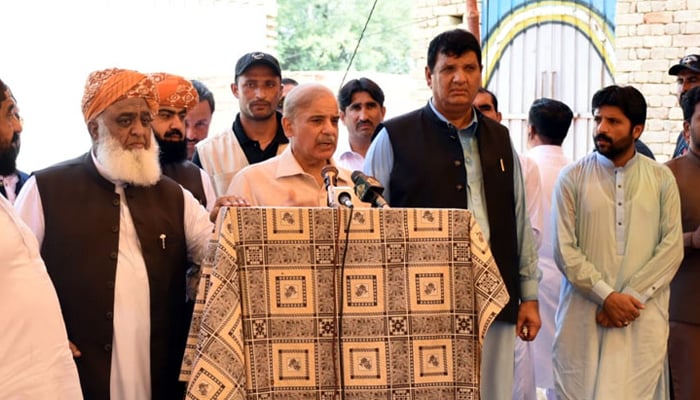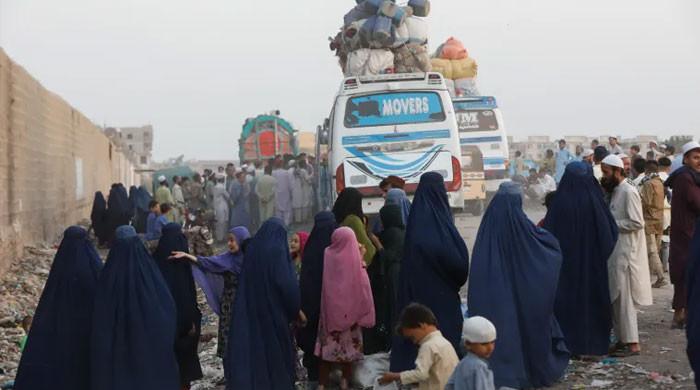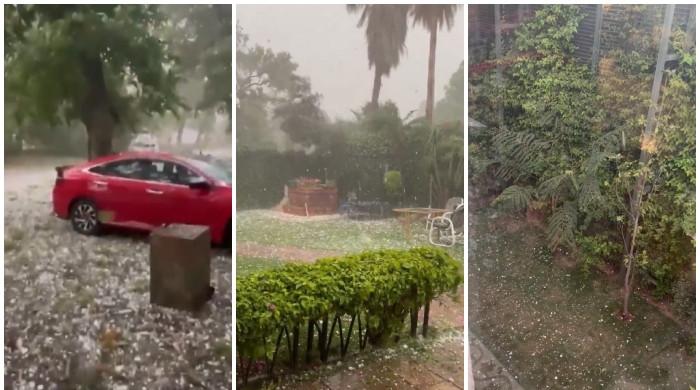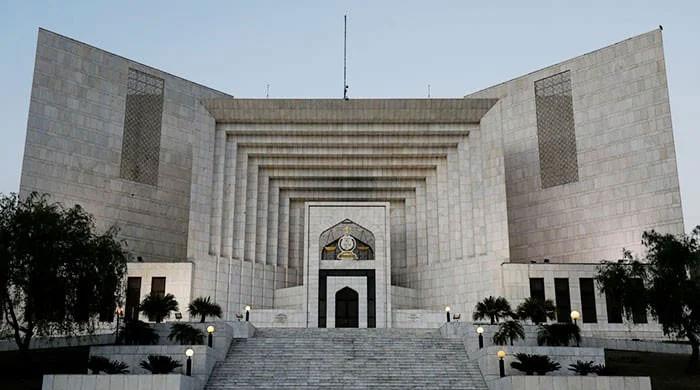What kind of independence is this where we are enslaved by IMF: PM Shehbaz
In visit to flood-hit districts of Khyber Pakhtunkhwa, premier frets over nation's economic dependence on international lender
August 04, 2022

- PM Shehbaz Sharif laments Pakistan enslaved by IMF.
- PM vows coalition government will take steps to overcome crisis.
- Premier visits flood-hit districts of Khyber Pakhtunkhwa.
PESHAWAR: Prime Minister Shehbaz Sharif questioned on Thursday the kind of independence enjoyed by Pakistan when the nation is "economically enslaved" by the International Monetary Fund (IMF).
Pakistan's political crisis, depleting foreign reserves, delay in the IMF's loan disbursement, and rupee devaluation have had a hard-hitting impact on the economy, and the country is seeking financial assistance on an emergency basis.
"What have we done since our independence in the last 75 years when we are economically enslaved by the IMF?" he questioned while speaking to journalists during a visit to the flood affectees in Peshawar.
The prime minister said that the coalition government would take decisions that would steer the country out of every crisis — as they face uphill tasks on several fronts.
Pakistan reached a staff-level agreement with the IMF last month followed by months of deeply unpopular belt-tightening by the government, which took power in April and has effectively eliminated fuel and power subsidies and introduced new measures to broaden the tax base.
The new government has slashed a raft of subsidies to meet the demands of global financial institutions, but risks the wrath of an electorate already struggling under the weight of double-digit inflation.
Following the staff-level agreement and the tough decisions, IMF's Resident Representative for Pakistan Esther Perez Ruiz said earlier this week that the country has completed the last precondition — increasing the PDL (petroleum development levy) — for the combined seventh and eighth reviews.
An original $6 billion bailout package was signed by former prime minister Imran Khan in 2019, but repeatedly stalled when his government reneged on subsidy agreements and failed to significantly improve tax collection.
PM calls for joint efforts to rehabilitate flood-hit areas
During his visit to the flood-affected areas of district Tank in Khyber Pakhtunkhwa, PM Shehbaz said that the collective efforts by federal and provincial governments were inevitable to ensure early rehabilitation of the people affected by flash floods caused by torrential rains.
The prime minister urged the KP government to enhance the compensation of the existing Rs0.8 million for the deceased to Rs1 million for bringing it at par with that of the federal government.
“Financial compensation is nothing [compared to the loss of their dear ones], but it will help them live through the challenges of life […] this is not a competition; this is complimentary; this is our responsibility,” he added.
Pakistan Democratic Movement chief Maulana Fazlur Rehman, who accompanied the prime minister, said the construction of the Tank Zam dam and other small dams would help save the area and its infrastructure from the floods.
During a briefing from officials, the prime minister was told that the floods had damaged around 11,000 households in the district and caused two deaths besides injuring seven others.
PM interacts with people
The prime minister also took a round of the shelter camps housing the flood-affected people.
He sat to interact with the families and expressed words of affection to the children.
The premier assured the displaced families that both the federal and provincial governments were collectively working for their early rehabilitation.
PM Shehbaz hugged an elderly flood victim after he fell into tears thanking him for sympathising with them and being the first prime minister to be with them in their hour of distress.











